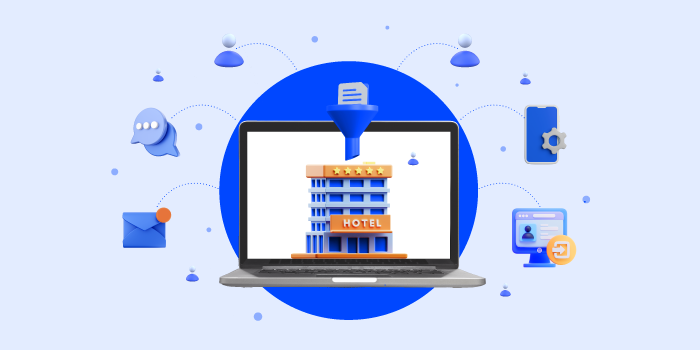When it comes to lead generation, many hotels get confused about the right channel to opt for their business. Assessing every channel, its pros, and cons, and then deciding whether or not it will give them the maximum output can be overwhelming.
Lead generation for hotels requires a strategy that maximizes revenue and growth. With everchanging consumer demands, persuading your potential guests to stay at your property takes work. You require the right marketing tools and tactics to stand out and convert the maximum number of customer inquiries into confirmed bookings.
This article covers the essentials and helps you overcome challenges to maximize lead generation for hotels. We will also discuss different websites and tools to ramp up the game. So, let us start by understanding why generating leads is important for hospitality businesses.
Importance of Lead Generation for the Hotel Industry
You can generate leads from both online and offline platforms. Generating leads is essential to drive more revenue and growth as it increases visibility and attracts more people to stay at your property. A few other reasons why lead generation is essential include the following:
- It allows you to understand your guests better
- It improves your guest’s best overall experience at your hotel.
But achieving these benefits isn’t as easy as it seems. Let’s take a look at the challenges hotels face while generating leads.
Challenges Faced by Hotels to Generate Leads
Lead generation can be challenging for hotels and there are several reasons behind it. From targeting the desired audience to advertising on the right platform, hotels must strategize their marketing campaign wisely. Some significant challenges faced by hotels include the following:
1. High Customer Acquisition Cost
Credits to OTAs, guests no longer rely on physical agents anymore to compare prices and reviews, check availability, and look into other details of any hotel or resort.
However, over the years, OTA platforms have gained popularity and established a dominant grip on the market. Due to this, they charge a high commission from hotels to generate leads. It eventually increases the cost of acquisition for hotels and drains their profits.
The biggest challenge in any business is sales, and the cost of acquisition is an inextricable part of it. As compared to other industries, the cost of acquisition is much higher for the hospitality industry, which slows down sales.
Dr. Joseph Britto, Co-founder and Director, Acron Homes and Hospitality
2. Low Marketing ROIs
You must construct a marketing strategy that matches your target audience. It includes showcasing your properties, amenities and offers on the right platform to reach out to people.
If you do not plan and implement your marketing strategy wisely, you might spend an enormous amount and achieve no results. Your organization’s goal should be to make more than a dollar for every dollar to invest in your marketing strategy.
Moreover, it would be best if you were unique in your approach. With so many competitors in the market, your uniqueness will get you more leads. And with more leads, the chances of them becoming guests increase.
3. Shying Away from Technology
Technology has taken up most of the work that was once done manually. While it saves time and improves operational efficiency, most hospitality businesses struggle to keep up with technology and online tools.
Hotels need to analyze their market and guest expectations. With that, they need to start integrating technological solutions in areas with less workforce. Tech and tools can bridge the gap between employees’ inefficiency and meeting your guests’ expectations.
4. Managing Online Reputation
Before technology became a vital part of our lives, people used to rely on word-of-mouth referrals. Now they follow reviews posted online by previous guests before booking hotels. According to Tripadvisor stats, 83% of potential guests read reviews before finalizing their stay at any hotel.
Online reviews allow people to compare reviews and guest experiences before making the final call. But a few hospitality businesses don’t have a process in place to collect and handle guest feedback before they leave the property. This, unfortunately, translates to guests expressing their discontentment online.
Now that we have discussed the challenges hotels face in generating leads. Let us understand how you can optimize your lead generation strategy.
6 Effective Ways to Generate Leads for Hotels
1. Content Marketing
Today, most travelers book hotels online. Therefore, you must have a strong and unique digital content marketing strategy. Analyzing the market and your audience will help you identify the right platforms to present your property.
The ultimate goal of creating content is to influence travelers to book rooms and stay in your hotel. You can offer a virtual tour of your property along with videos, images, and guest testimonials to pique your guest’s interest.
Bonus Tip: You can even create planned itineraries, guides, and to-dos for your potential guests to download while they browse your website. Helpful and engaging resources serve as lead magnets. These resources can appear as popups or as a part of your articles to add value to your guest’s digital experience.
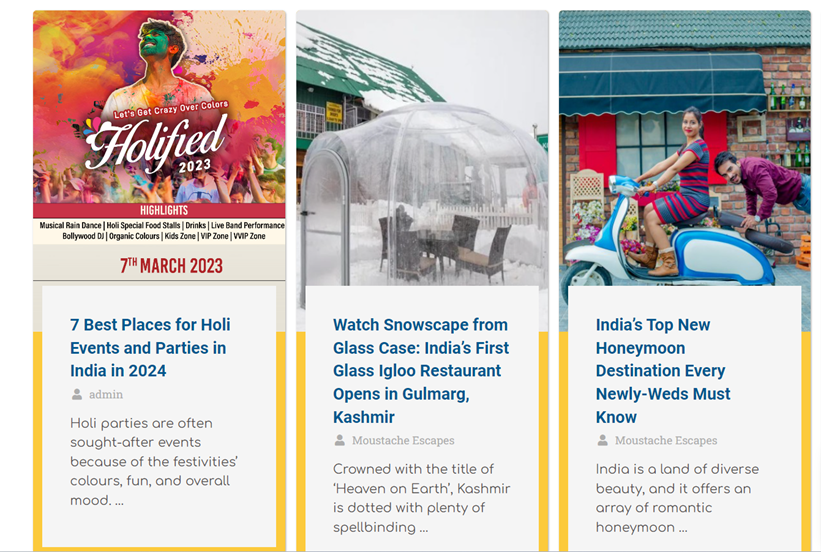
2. Social Media Marketing
Social media marketing is a popular and creative way to promote your business by posting engaging content and running ads on these platforms. But the outcome of your lead generation strategy on social media depends on the platform that you choose.
For example, if your target audience is around the early 20s and 30s, Instagram is the best way to generate leads. Whereas, if you target people over their 50s, Facebook might be a better bet.
Bonus Tip: You can ask your guests to tag your property in their social media posts to create user generated content. Collaborating with influencers and investing in paid promotions are a couple of ways to stay on top of your target audience’s feed.
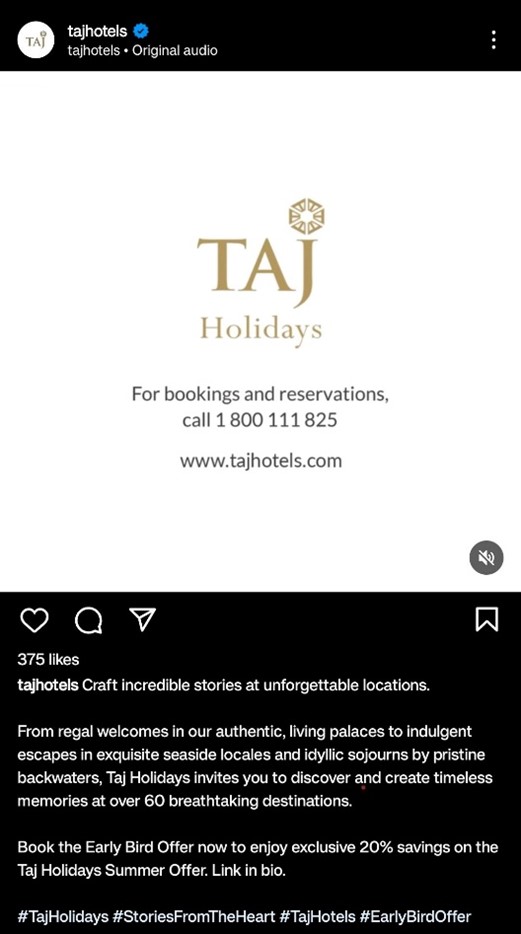
3. Email Marketing
We can’t talk about lead generation without covering email marketing. It is the best way to target the mass public and convert the reader into a potential guest.
Email marketing helps you build a relationship with your prospective guests. It’s a good channel to generate quality leads as it involves gaining their trust and establishing your hotel’s reputation.
Bonus Tip: You can automate personalized emails using marketing automation tools to share information or offers with your guests. It increases the chances of upselling a service at your facility (to guests who have booked a hotel room) or cross-selling stays at other properties. Here a couple of ways you can reach out to potential guests using email campaigns:
- Inform the guests about what’s new at your hotel/resort. (Services, cultural events, etc.)
- Offer seasonal discounts or membership vouchers.
- Share customer testimonials or information about the amenities at your facility.
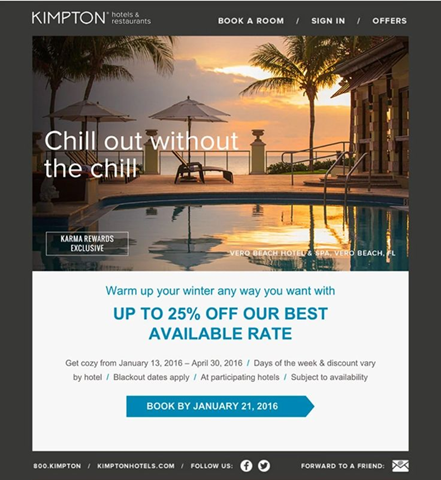
4. PPC Advertising
PPC advertising, also known as Pay-per-Click advertising, is one of the most cost-effective ways of generating well-targeted leads. As the name suggests, PPC charges you based on the number of clicks your ad gets.
There are three major components of creating PPC ad for your hotel. First comes the heading. It needs to be catchy and create urgency. You can do that by promoting discounts, offers, and vacancies.
The second comes is a short description of what your headline and ad campaign are about. Lastly, you need to link the PPC ad with your landing page. An attractive landing page increases the chances of converting visitors into guests and generating leads for your hotel as well.
Once you have researched the market and know your target audience, find the keywords that suit your hotel. For example- if you are looking for hotels in Bangalore, you can target keywords such as ‘hotels near me,’ best hotels in Bangalore,’ and ‘cheap hotels in Bangalore,’ for a paid listing.
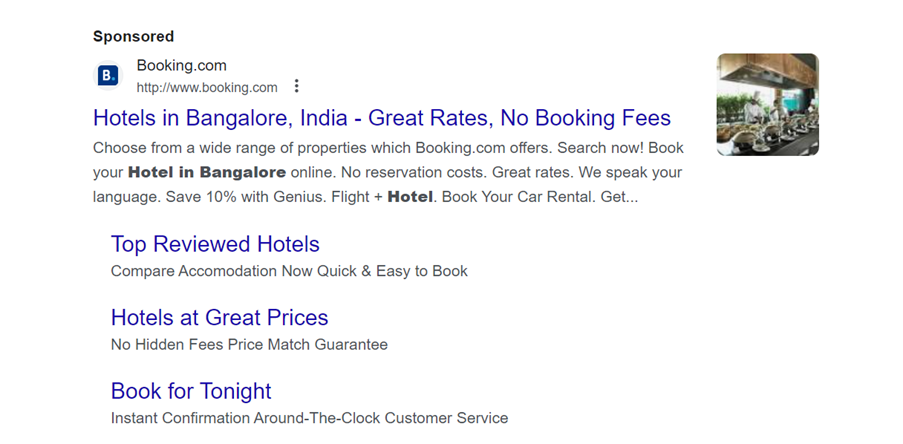
5. Local SEO
SEO stands for Search Engine Optimization. It is a process to optimize your website’s ranking on search engines like Google, Yahoo, Bing, etcetera. Good SEO practices allow your website, blogs, and articles to rank higher on these search engine result pages (SERP). Some key benefits of Local SEO are that it:
- Improves the online visibility of your hotel.
- Generates higher relevant traffic.
- Helps your business gain repeat customers.
- Builds the trust and authority of your brand through a higher ranking.
- Establishes a local presence.
- Generates leads for your hotel, increasing sales and revenue.
Most hotel-related searches are location specific. Therefore, local SEO optimize your hotel’s online presence. As per statistics, 54% of marketers say it’s the most important part of their search engine optimization (SEO) strategies.
Bonus Tip: You can easily feature on Google’s results by registering yourself as a business on Google Maps. It allows you to display your properties and pricing even if your website doesn’t rank for the chosen keyword.
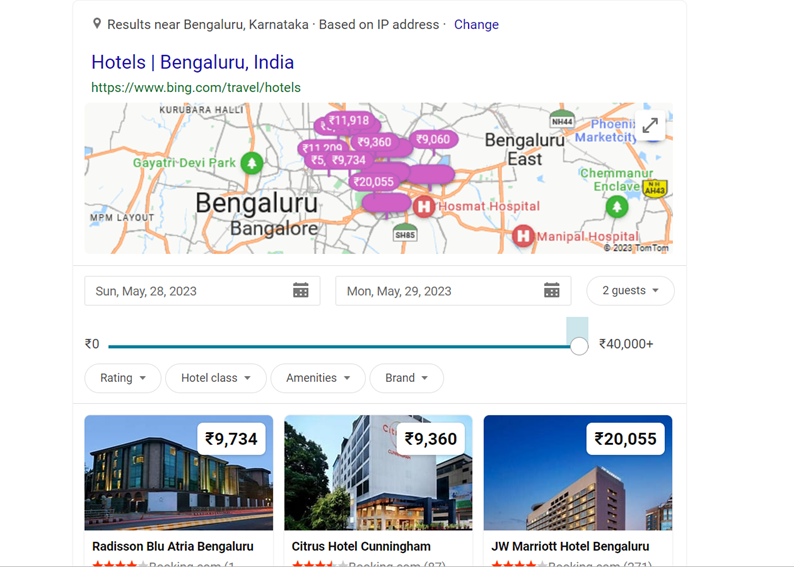
6. OTA Platforms
Online travel agencies are the best way to generate new leads. They allow you the flexibility and control to maximize online bookings.
OTA platforms are convenient and easy to handle, they essentially become an autonomous stream of consistent leads. By balancing your lead generation efforts with activities like SEO and content marketing, you can bring down the overall cost of acquisition and include OTA platforms to your lead generation strategy.
Some of the top global online travel agencies are as follows:
1. Booking.com
It is one of the most popular OTA platforms, with an audience of over 50 million in more than 200 countries. Depending on your hotel property and market size, the commission ranges between 5%-30%.
Website: https://www.booking.com/
2. Expedia
It serves 75 countries and has around 600 million monthly visits. You can access and compare all types of properties and accommodations worldwide. The average commission of Expedia falls close to 16.5%, depending on the size and type of your property.
Website: https://www.expedia.com/
3. Airbnb
It came up with a unique concept of accommodation in 2008. Guests who prefer a local experience or long-term stays generally prefer to make bookings on Airbnb. Depending on the locality, size, and type of contract, the commission Airbnb charges varies between 14% to 20%.
Website: https://www.airbnb.com/
4. Agoda
It lists all types of properties and is one of Asia’s leading OTA platforms. It has a total audience of over 2.3 million travelers from 65 countries. Agoda charges an average commission of 16% depending on the size and type of property you are listing.
Website: https://www.agoda.com/
5. Make My Trip
It was founded in the year 2000 and is one of leading OTA platforms in India. Make My Trip has around 13.9 million visits every month; most of the audience is between 24-35 years. It charges around 10-25% commission from hotels to list them on its website.
Website: https://www.makemytrip.com/
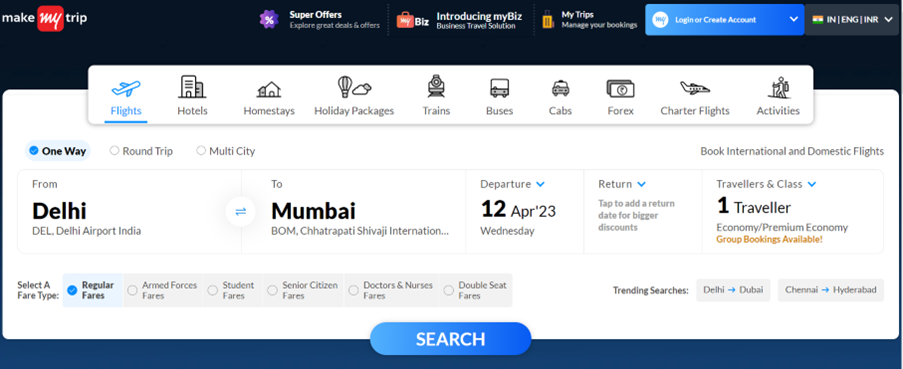
Wrapping Up
An effective lead generation strategy for hotels is essential to keep your business on firm ground in the competitive market. We discussed all the possible challenges hotels face to generate leads and different ways to overcome them.
However, according to stats, 79% of generated leads don’t convert into sales. It’s because generating leads is just the first step of the sales cycle. You need to nurture them efficiently, and as you generate more leads, you’ll need a tool to manage your leads and opportunities at scale.
This is where LeadSquared CRM comes in. It allows you to nurture the leads and convert them into paying guests. It’s a one-stop platform with all the information you need about your leads—lead preferences, demographic details, source campaigns, previous interactions, etc. It even gives you an overall view of the stage where a particular lead stands and what tasks are yet to be performed.
If you’re interested to know more about how you can manage, nurture, and engage your leads you should get in touch with our team at LeadSquared today!





